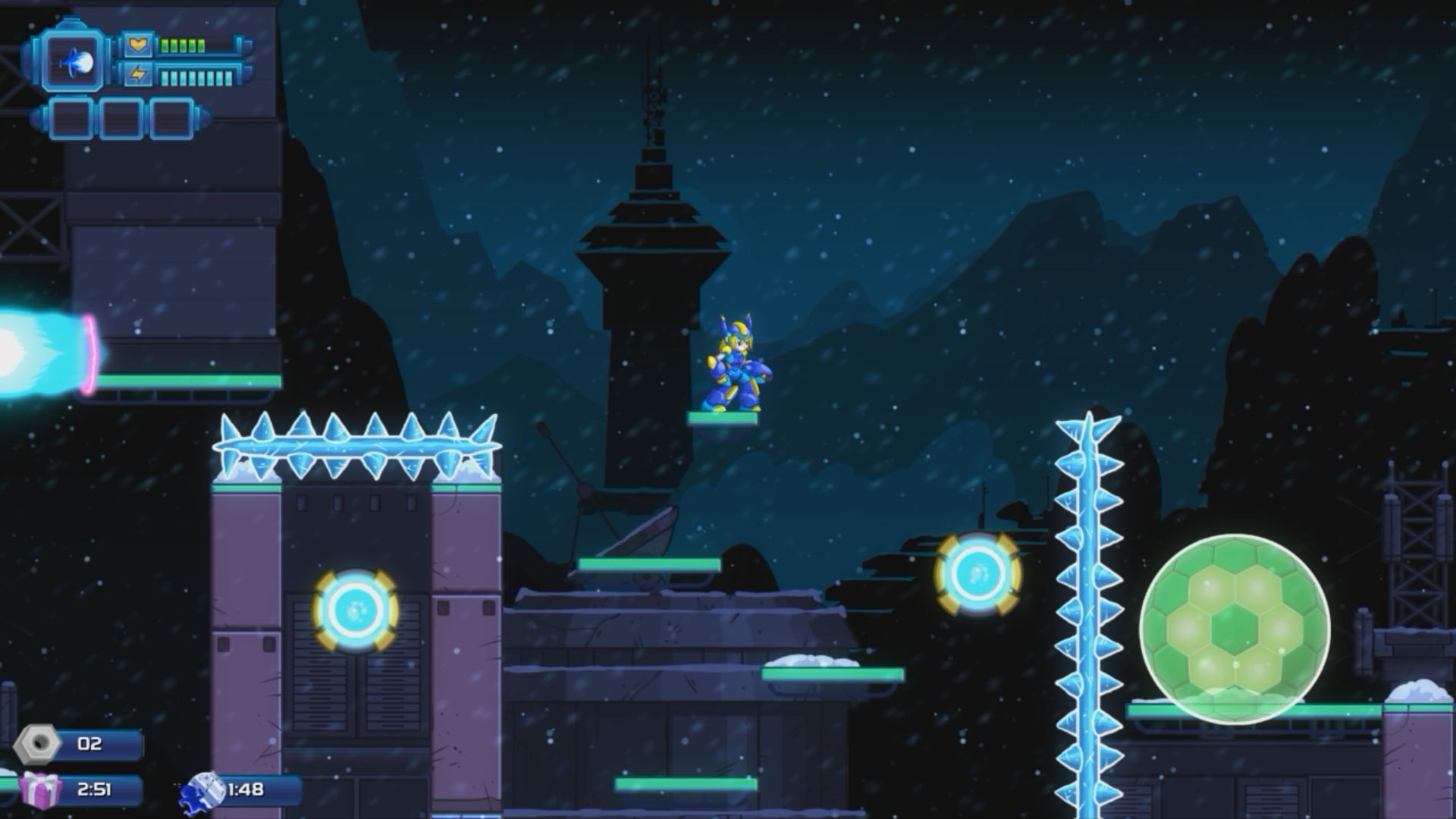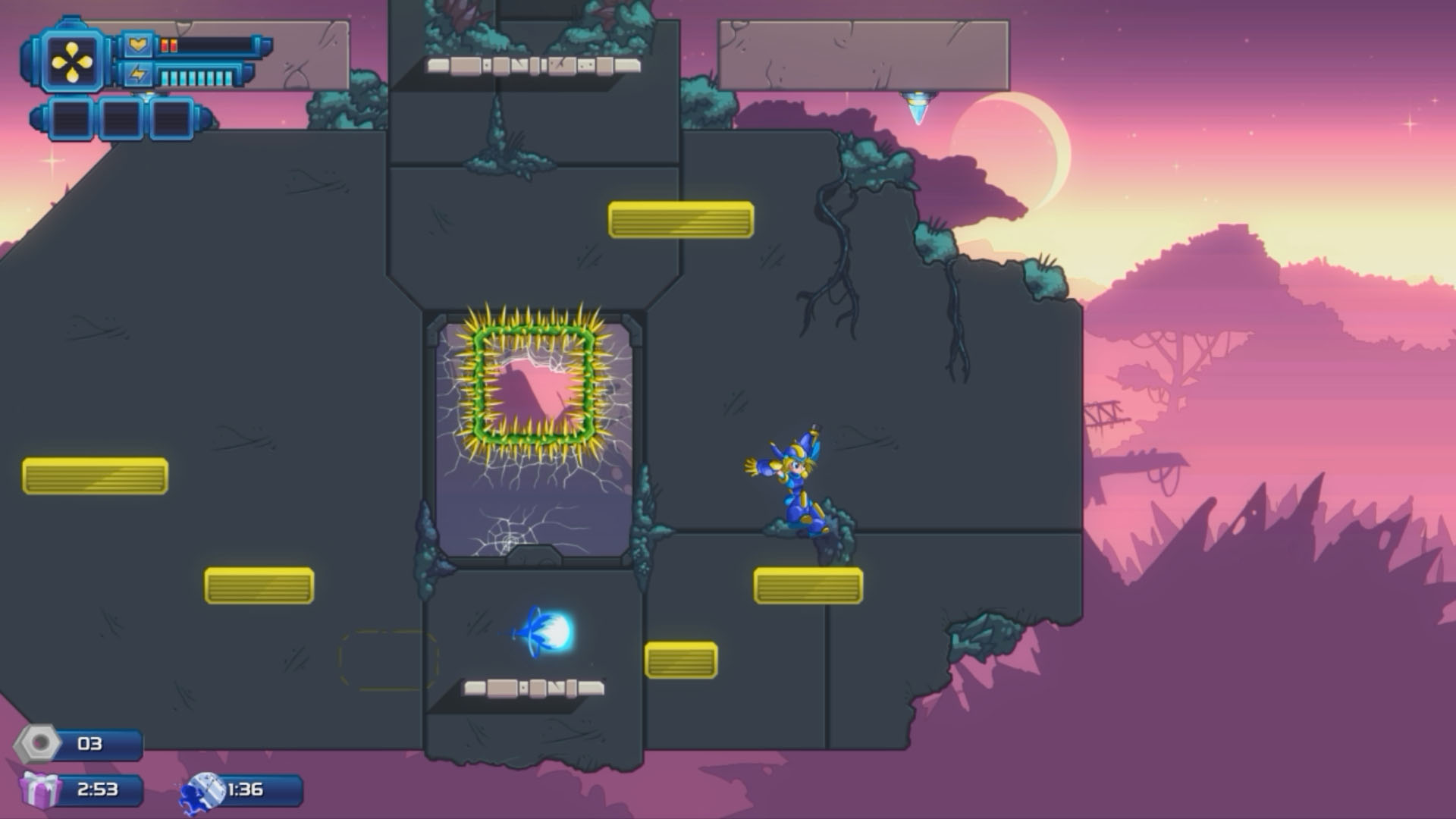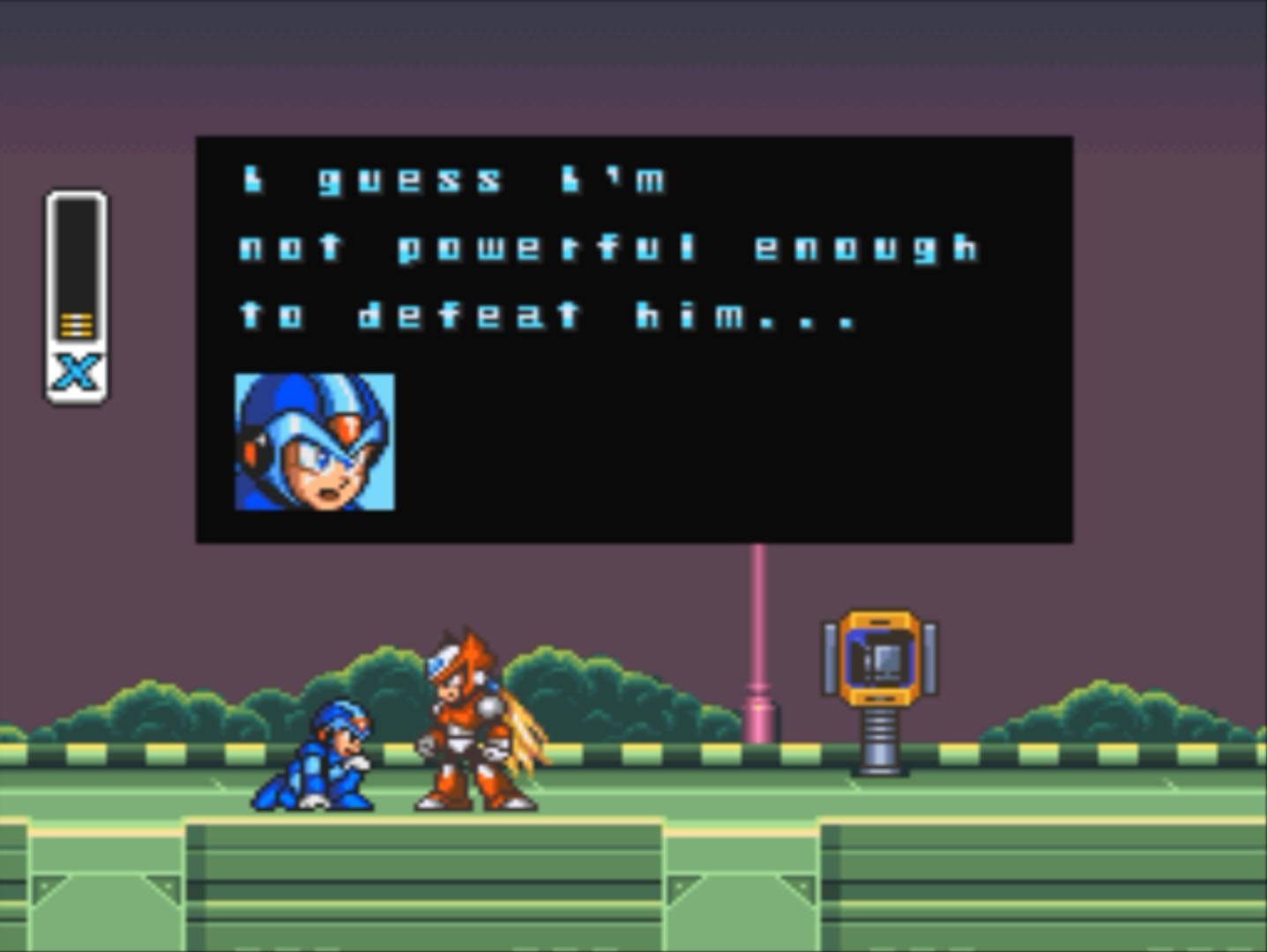DIY Super NES Classic #09: Mega Man X / 20XX
By Christopher Gates Posted in Video Games on September 18, 2017 4 min read
So, you didn’t manage to snag a Super NES Classic. Yeah, neither did we. But instead of whining about it—okay, in addition to whining about it—we’ve decided to put together our own “DIY Super NES Classic” collection by replacing retro SNES titles with the best indie games we can find. It’s the next best thing to actually owning one!
The game: 20XX
Play it instead of: Mega Man X
Why we chose it:
Unlike other games on this list, 20XX isn’t a so-called spiritual sequel or a Mega Man X-like. It’s a straight-up Mega Man X remake. The two playable characters—who look just different enough from Mega Man and his buddy, Zero, to avoid a lawsuit—control almost exactly like their Super NES counterparts. Environments look similar, the music sounds the same, and both games share the same general gameplay loop. Delve into levels to collect power-ups, then use those to take out other rogue robots.

But there’s one big difference between the two: 20XX changes every time you play it. 20XX is a procedurally-generated roguelike Mega Man X remix. If you’re not up on your gaming parlance, that’s probably gibberish. We’ll explain.
Traditionally, game developers design game elements themselves. With procedural generation, programmers create algorithms, and algorithms create the content. Procedural generation drives games like No Man’s Sky and Elite Dangerous, which have billions of worlds to explore. You see it in Minecraft, too. Every Minecraft map starts with a “seed,” or a random number, which various formulas use to create the level’s topography.
In 20XX, this means that the levels are different every time you play, even if thematic elements—like different kinds of terrain, or the enemy selection—remain constant. Now, procedural generation doesn’t mean that it’s random. Rules make sure that you can actually play the generated content, of course. Formulas are consistent, too. If you put the same “seed” variable into the system, you’ll get the same result every time.

The “roguelike” label goes hand-in-hand with procedural generation. In short, a roguelike apes the structure of the old dungeon crawling game Rogue. Rogue builds tension by introducing “permadeath”—i.e. your character dies, you stay dead, and have to start everything over from the beginning. That’s why procedural generation is so important to this kind of game: you can’t memorize a level and hammer at it until you master it. You get one shot. Afterwards, it’s on to something new.
20XX deviates from the most traditional roguelikes in many ways. When you die, you keep all of the money that you’ve earned, which you can use to buy (permanent) upgrades at your home base that’ll make future runs last a little longer. Normally, roguelikes are turn-based, hack-and-slash RPGs, not side-scrolling action games.
Semantic differences aside, however, Mega Man X provides a great template for a fast-paced roguelike platformer. After all, the whole point of Mega Man X—and any core Mega Man game—really boils down to delving into dungeons (or robot bases) in search of loot (or weapons), which make your character more powerful and make it easier to beat the next level. That’s a roguelike in a nutshell. 20XX simply adds procedural generation to the mix. It works perfectly.

Of course, with procedurally generated levels, you make some sacrifices. Mega Man X is full of hidden upgrades (including the Street Fighter hadouken), and when you play it, you get pretty good at identifying where secrets might be hiding. When you transition to 20XX, you’ll see the same kinds of side pathways, but they don’t usually pay off. Until you learn to ignore them, you’ll waste a bunch of time (and, usually, some precious life) following them. Difficulty-wise, 20XX’s levels don’t flow quite as well as Mega Man X’s, either. The system might spit out an incredibly challenging platforming section right at the beginning of a level, while letting you breeze through a stage’s second half.
In other words, levels aren’t hand-crafted, and you can tell. Of course, if you don’t like a stage, you can always just kill yourself and hope for a better one. Besides, Mega Man X is pretty easy, especially for a Mega Man game, and while it’s one of my favorite Mega Man titles, once you’ve beaten it there’s not much else to do. By contrast, 20XX never stops providing new content. A Mega Man X that lasts forever? Yeah, we’ll take it.
Where to get it: Amazon ($14.99)